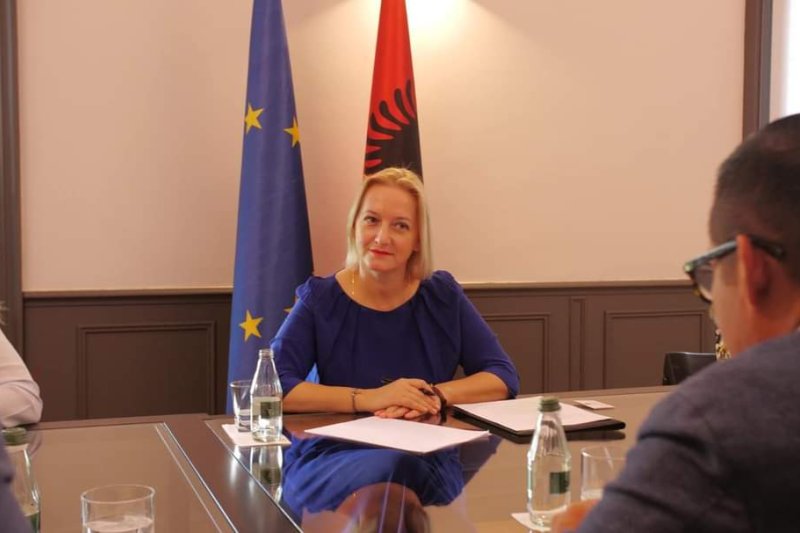W. Bank EUR 65M for Export Standards
The Minister of Agriculture and Rural Development, Anila Denaj, held a meeting with the World Bank mission, where they discussed the "Climate Resilience and Agricultural Development" project, financed by the global lender.
The minister announced that the project has a value of around Euro 65 million and aims to improve and modernize the irrigation drainage systems.
Also, Denaj emphasized that through this financing, "Clusters" for olive oil and fruits and vegetables will be created to increase the standards of export and marketing of olive oil as a "Premium" product.
"The project aims to create food centers for the collection, processing, packaging, and distribution of agricultural products for markets such as 'HoReCa', as well as the digitization of agriculture for the improvement of agricultural production," said Denaj in a statement on Wednesday.
Also, the minister emphasized that this project aims to increase food security, as well as to modernize border control points.
Denaj also underlined that this project contributes towards sustainable and modern agriculture, increasing the productivity, quality, and competitiveness of "Made in Albania" products.
The development objective of the Climate Resilience and Agriculture Development Project for Albania is to increase competitiveness and climate resilience of priority agri-food value chains. The project comprises three components. The first component, promoting climate-smart agriculture and access to markets aims at supporting resilient and climate-smart agriculture, productivity and quality improvements, and improving market access through investments to shorten value chains, strengthen resilience of food supply, introduce digital technology, and develop a modern and reliable irrigation delivery services and drainage network for high-value agricultural production. It consists of the following sub-components: (i) promoting climate-smart and resilient value chains; and (ii) modernizing selected irrigation and drainage schemes for high-value agricultural production. The second component, enhancing compliance with food safety and quality standards aims at addressing weak compliance and control mechanisms related to food safety, veterinary, and phytosanitary standards which currently impede competitiveness and create market access inequalities both in the local and export markets. The third component, strengthening the evidence-based analysis capacity of the Ministry of Agriculture and Rural Development (MARD) and municipalities aims at establishing a sustainable and effective monitoring and evaluation (M and E) system for agricultural and rural development policy in Albania.













